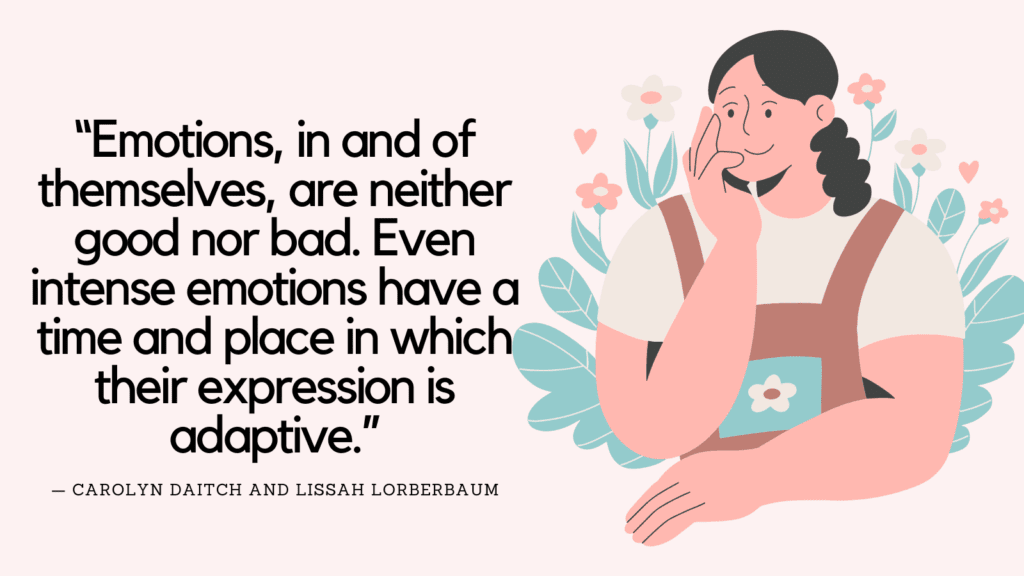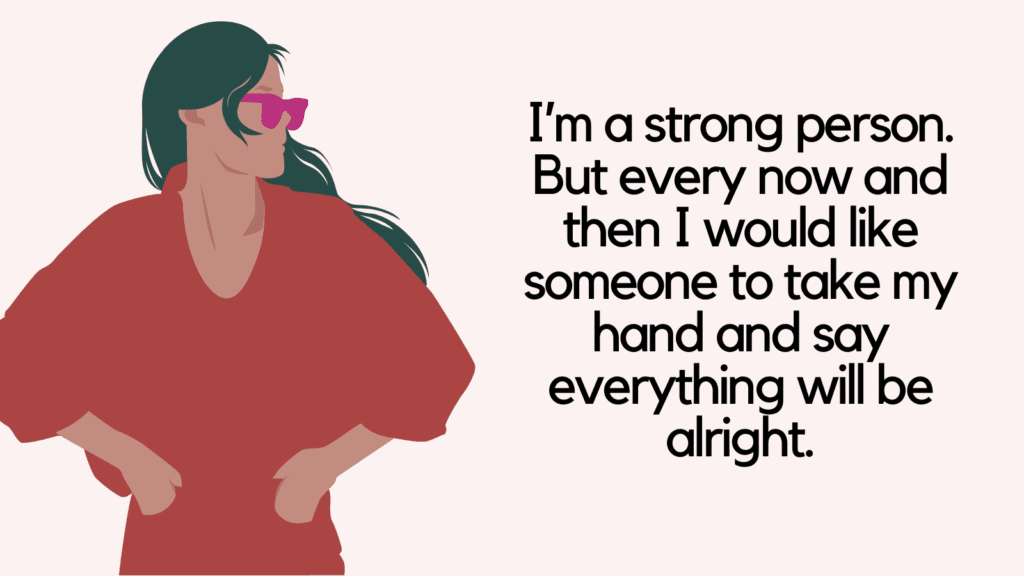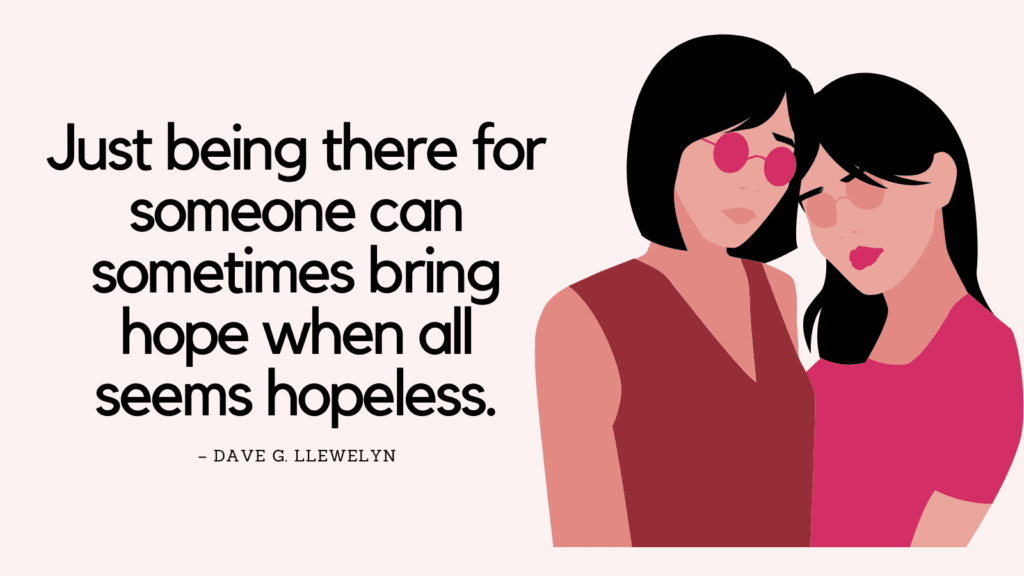This post contains some of the best pain demands to be felt quotes.
Pain Demands To Be Felt Quotes
1. “Everyone experiences an ever-changing, constant flow of emotions. The goal is to modulate the intensity of your emotion, not eradicate it.”—Carolyn Daitch And Lissah Lorberbaum
2. “When emotions are high, you need to stop the action and take a time-out. It is unrealistic to expect to reduce knee-jerk emotional reactions without taking a break to soothe the agitated nervous system and calm the mind. A break allows sufficient time to gain perspective and reevaluate your responses.”—Carolyn Daitch And Lissah Lorberbaum
3. “Emotions, in and of themselves, are neither good nor bad. Even intense emotions have a time and place in which their expression is adaptive.”— Carolyn Daitch And Lissah Lorberbaum
4. “Whether the emotional flooding is fear, anger, sadness, or another emotion, it is a good habit to identify the bodily reactions that accompany these emotions. These physical sensations serve as warning signs that emotional flooding is imminent.”—Carolyn Daitch And Lissah Lorberbaum
5. “The ability to experience a range of emotions is crucial to human beings’ ability to thrive in life. However, problems can arise when the level of anger, fear, sadness, or any other challenging emotion becomes overwhelming and keeps you from functioning effectively.”— Carolyn Daitch And Lissah Lorberbaum
6. “When you are flooded by emotions such as anger or self-criticism, it is crucial to call on the compassionate and empathic part of yourself.”—Carolyn Daitch And Lissah Lorberbaum
7. “There are many times in life where strong emotions are appropriate. However, the same intense fear, anxiety, or anger that can save your life can be maladaptive if applied in the wrong context.”— Carolyn Daitch And Lissah Lorberbaum
Related: Top 21 Healing Journal Prompts To Support Your Healing Journey
8. “When you’re flooded with intense emotion, it’s easy to forget your strengths and capabilities and believe that you are unable to meet the challenge you are facing. When feeling overwhelmed, you perceive that your strengths are not sufficient to meet the challenge you’re currently facing. This may be reinforced by previous difficulties quelling overwhelming emotions.”—Carolyn Daitch And Lissah Lorberbaum
9. “Consciousness is an emotion-filled experience. Every moment that you are awake (and even some of the moments you are asleep) you experience an unending tide of emotion.”— Carolyn Daitch And Lissah Lorberbaum
10. “Loneliness can arise from feeling isolated, forgotten, or uncared for. It’s possible to feel lonely even in a relationship, if you perceive a lack of connection. No matter the cause, when you feel lonely, you are less capable of regulating your emotions and more susceptible to emotional flooding. It is for this reason that it is crucial to have tools to cope with feelings of loneliness.”—Carolyn Daitch And Lissah Lorberbaum
11. “The goal of emotional regulation is not to become void of emotion. Rather, it is to moderate the intensity of your reactions to the inevitable triggers in your life, so that you can experience your emotions fully, without fear that they will engulf you.”—Carolyn Daitch And Lissah Lorberbaum
12. “As you move through an average day, the majority of emotions you experience are not particularly remarkable (unless you are struggling with a particular psychological disorder or undergoing a huge life change or stressor). In fact, you often fail to register emotion at all. But you are constantly experiencing an ever-changing flow of emotion nevertheless.”—Carolyn Daitch And Lissah Lorberbaum
Related: Top +100 Journal Prompts For Mental Health [+Free PDF Printable!]
13. “Rather than being swept away in the flood of your own emotions, the first step is getting in the habit of scanning your thoughts, emotions, behaviors, and sensations, even when things are going smoothly.”—Carolyn Daitch And Lissah Lorberbaum
14. “As you teach yourself to patiently and consistently handle your emotions without excessive reactivity, you cultivate a secure and grounded internal environment that can transform your life.”—Carolyn Daitch And Lissah Lorberbaum
15. “Our body is impermanent, our emotions are impermanent, and our perceptions are impermanent. Our anger, our sadness, our love, our hatred, and our consciousness are also impermanent.”—Thich Nhat Hanh
16. “Rather than trying to control or dictate your emotions, it is far more beneficial to observe and respond to your ever-changing emotional states.”— Carolyn Daitch And Lissah Lorberbaum
17. “Emotions are feeling-rich experiences that can vary in degrees of intensity. They are transitory, meaning that if you wait long enough, they will pass.”—Carolyn Daitch And Lissah Lorberbaum
18. “Emotions can also belie logic or reason. Just because you tell yourself you should be feeling a certain way does not mean that your emotions will follow suit. Further belying logic or reason, you can also experience multiple, seemingly contradictory emotions simultaneously.”—Carolyn Daitch And Lissah Lorberbaum
Related: Top 21 Emotional Writing Prompts To Process Emotions
19. “Just embracing your anger, just breathing in and breathing out, that is good enough. The baby will feel relief right away.”—Thich Nhat Hanh
20. “Feeling an emotion is not the problem. Your ability to experience a vast range of emotions, and varying intensities of emotion, greatly enriches and enhances life. Emotional flooding becomes a problem, however, when you lack tools to check the intensity of a given emotion and suffer as a result.”— Carolyn Daitch And Lissah Lorberbaum
21. “The ability to experience strong surges of emotion, especially fear, anger, and sadness, can serve you in countless ways. Fear and anger help alert you to the possibility that some aspect of your well-being might be in jeopardy. Once the alert signal is sounded, the experience of fear or anger then helps your mind and body mobilize to determine if a threat is present and to protect you if it is. Unlike fear and anger, the experience of sadness doesn’t set off alarm bells to mobilize you into protective action. However, sadness can help protect you by motivating you to see the value of and preserve what is important in your life.”— Carolyn Daitch And Lissah Lorberbaum
Related: How To Feel Your Feelings & Sit With Painful Emotions? (Top 9 Difficult Emotions)
22. “Every time you feel lost, alienated, or cut off from life, or from the world, every time you feel despair, anger, or instability, practice going home. Mindful breathing is the vehicle that you use to go back to your true home.”— Thich Nhat Hanh
23. “When your beloved makes you suffer because she is angry, at first you feel that she deserves punishment. You want to punish her because she has made you suffer. But after ten or fifteen minutes of walking meditation and mindful looking, you realize that what she needs is help and not punishment.”— Thich Nhat Hanh
24. “When you see your face looking like a bomb ready to explode, you are motivated to do something to change it. You know in your heart what you can do to look more beautiful. You don’t need cosmetics. You need only to breathe peacefully, calmly, and to smile mindfully. If you can do that one or two times, you will look much better. Just look in the mirror, breathing in calmly, breathing out smiling, and you will feel relief.”— Thich Nhat Hanh
25. “You have to express what you feel. You have the right.”— Thich Nhat Hanh
Related: Best 99 Coping Skills (+FREE Coping Worksheets)




